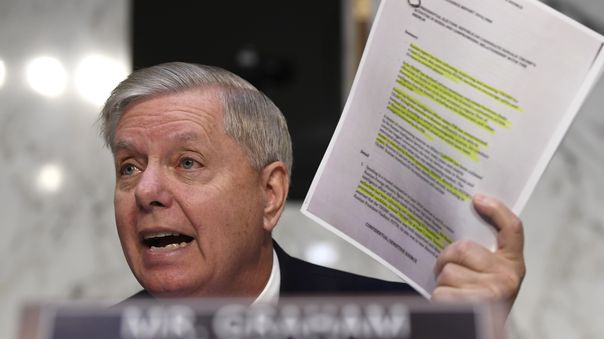Editor's note: Johannes Drooghaag is an analyst and strategist for cybersecurity in the Netherlands and author of "The Human Element in Cyber Security." The article reflects the author's opinions, and not necessarily the views of CGTN.
The U.S. administration launched an aggressive campaign against the world's fastest growing social media application, TikTok, which leaves the owner ByteDance the options to either be banned completely or sell its operations to a U.S. corporation.
Justification for this campaign is the privacy concern for U.S. citizens and of course the omnipresent cybersecurity concerns which the current administration seems to have. TikTok, in which users make dance and lip sync videos and other stuff, is apparently such a threat that the U.S. administration designated the app as a threat to national security.
What is so dangerous about TikTok that the U.S. declares it a threat to its national security? Analysts have determined that TikTok collects fast amounts of data about its users and that could be a reason to be concerned. But for the same reason, so do Facebook and many other social media platforms. We could argue about the actual need and purpose to collect so much data, but when we have that conversation, we should discuss all platforms and not just one that happens to be a Chinese app.
The next argument to force TikTok to leave the U.S. one way or the other is the expressed concern that China has legislation that could force ByteDance, TikTok's owner, to hand over data on U.S. citizens to the Chinese government.
Now is there an argument we can relate to? Who would want their private data in the hands of a foreign government without even having the slightest idea of what they will do with it? Something to be concerned about and governments should step up. Privacy is important and definitely something to be involved in as government.
Like, for example, the European Court of Justice did when it canceled the Privacy Shield agreement with the U.S. because the U.S. legislation allows intrusive surveillance and data collection of basically everyone under the Foreign Intelligence Surveillance Act (FISA), with additional enhanced surveillance authorization under the Uniting and Strengthening America by Providing Appropriate Tools Required to Intercept and Obstruct Terrorism (USA PATRIOT Act).

Senate Judiciary Committee Chairman Lindsey Graham holds up a copy of the "Steele Dossier" during a hearing with Department of Justice Inspector General Michael Horowitz on Capitol Hill in Washington, to look at the Inspector General's report on alleged abuses of the Foreign Intelligence Surveillance Act (FISA), on December 11, 2019. /AP
Senate Judiciary Committee Chairman Lindsey Graham holds up a copy of the "Steele Dossier" during a hearing with Department of Justice Inspector General Michael Horowitz on Capitol Hill in Washington, to look at the Inspector General's report on alleged abuses of the Foreign Intelligence Surveillance Act (FISA), on December 11, 2019. /AP
If that is not enough, the Clarifying Lawful Overseas Use of Data Act (CLOUD Act) forces the U.S. to provide access to data on non-U.S. citizens and entities even when it is stored abroad. And as the "cherry on the cake," Mr. Trump issued an executive order during his first week in office that lifts privacy restrictions for all foreign subjects.
Let that sink in for a moment. The European Union (EU) canceled a treaty on data sharing with the U.S. because the U.S. government has legislation to force companies to hand over data on EU citizens even when that data is stored in the EU, and we know that the U.S. government is actively using these legislative powers.
Take a deep breath and run once more through the accusations against TikTok. The U.S., which has legislation to allow mass surveillance and intrusive data collection on foreign citizens and companies, accuses TikTok of doing what it does itself.
In the expert opinion of the European Court of Justice, U.S.-based corporations could not even provide proper privacy controls if they wanted to or be GDPR compliant because U.S. legislation overrules any thinkable privacy control they could implement.
Australia, a Five-Eye partner, is stepping away from accepting U.S. service providers with data storage in Australia as compliant with their privacy legislation, because the CLOUD Act would still force them to hand over data to the U.S. government.
Privacy is not really a priority of the U.S. government and especially not when it comes to subjects of other countries. So, what is really behind the attack on TikTok? It is its popularity.
The CLOUD Act does not apply to the whole of ByteDance and TikTok so the U.S. is not able to force access to data on its users, like it can with all the U.S.-based social media and cloud platforms.
That is a bummer for a government that still believes it can prevent anything or everything through mass surveillance. And just like the immense success stories of Huawei and Tencent, ByteDance is chewing away a nice piece of the revenue cake that U.S. corporations held a monopoly over not so long ago.
So, this is not about your privacy at all and most certainly not about national security. This is solely about unrestricted access to your data and control over where companies spend their budgets to influence you with advertisement.
The campaign against TikTok is not a sincere dialogue or even an attempt to protect your privacy. It is just another step in an economic war against China and attempt to restore fading power over our digitally connected society.
(If you want to contribute and have specific expertise, please contact us at opinions@cgtn.com.)